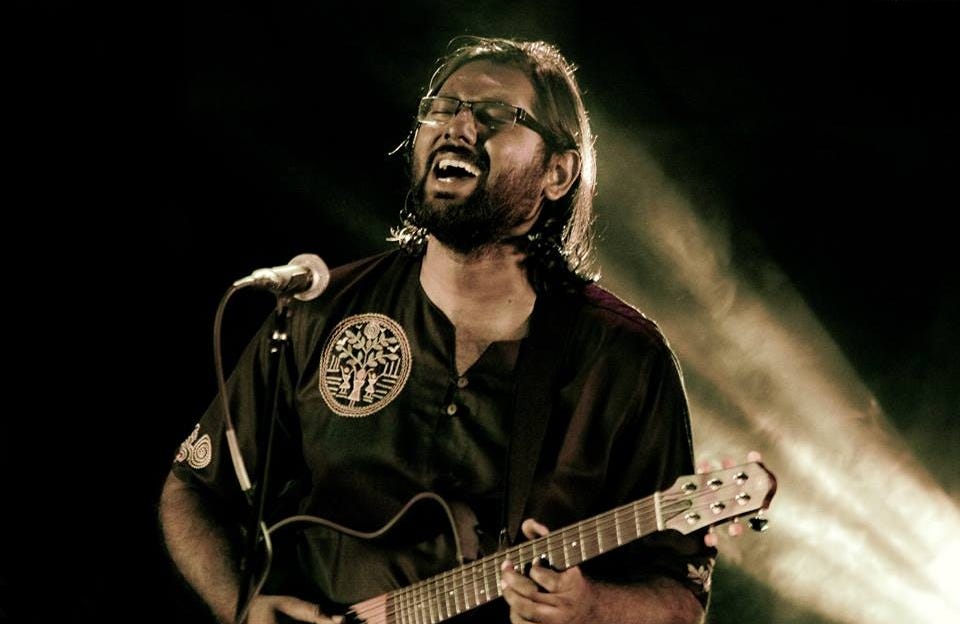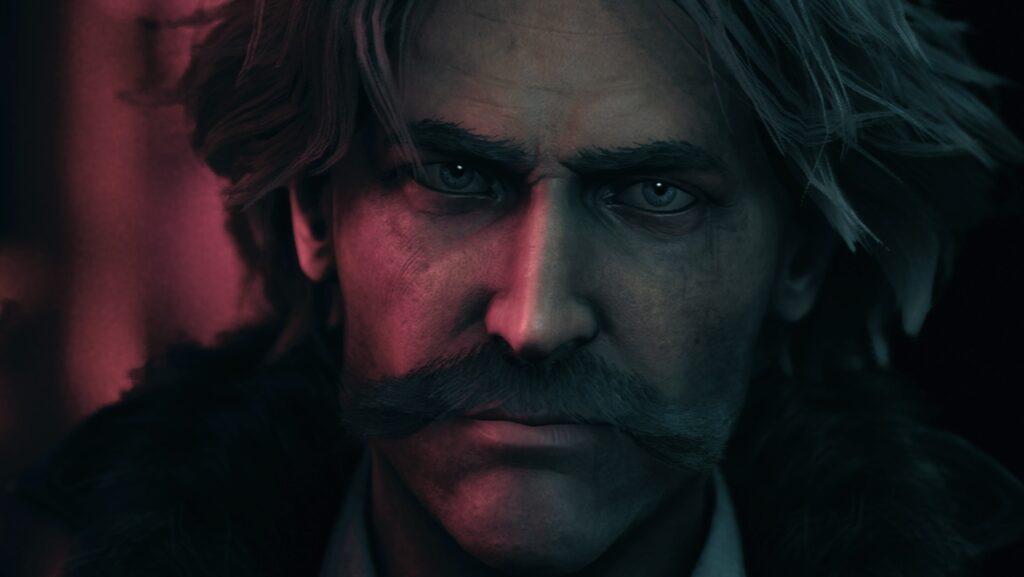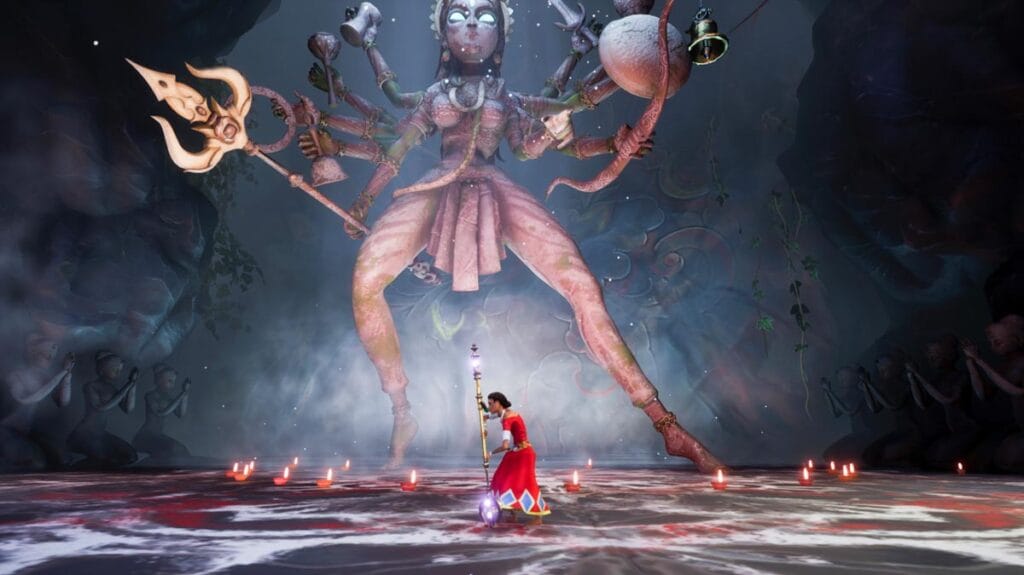Welcome to the second edition of Drop C++, a series about the people who put the music into your favourite (and not-so-favoured) games. Over the course of discussions with a variety of musicians, composers and sound designers, this set of articles will seek to shed some light on how the music comes together, the people who make it, what inspires them and more. And with that out of the way, here comes Volume 2 of the series.

In 2013, Nikhil Rao joined Indian fusion rock titans Indian Ocean, and for over 11 years — at the time of writing — has been part of the group’s various projects ranging from studio albums Tandanu and Tu Hai, to providing music for such films as 2015’s Masaan, putting on live performances and such-like. Despite his admittedly low interest in actually playing games, it was no surprise to see his name as music composer for the upcoming Detective Dotson. His fusion rock credentials, after all, perfectly complement the India-as-a-melting-pot aesthetics and feel of the game.
A bit of background before we go any deeper: Masala Games founder and Detective Dotson creative director Shalin Shodhan and his team describe the game as “[a] story-driven adventure game set in modern-day India.” Over the course of your time in the game, you’ll get to meet colourful characters and use disguises to get information. Further, you’ll get to “[e]xplore the richly detailed streets of India to collect clues and complete the evidence board, [and] solve cases as Dotson — the reluctant detective who wants to be a Bollywood star!”
Taking on the Dotson case
“Shalin is a close childhood friend and someone we were all proud of, not least because he attended Carnegie Mellon University and worked at Pixar. He moved back to India a decade ago and I vaguely knew he was building educational games for children, but had no inkling he was building Detective Dotson,” Nikhil says. For the uninitiated, the project entails a game (expected next year) and a film that launches in a few weeks. You can find out more about the film below:
“Shalin showed me the preliminary work they had done on Detective Dotson, and I loved it, and I also appreciated how clear he was — both as a creator and a project manager,” notes Nikhil, explaining that while he had no experience making music for a game, he had a feeling that the journey would be worth it. And so it was that it fell to Shalin, Nikhil and Noida-based producer Sharad Joshi to put together music and sound design for the world of Dotson.
And it all starts with the brief. “I’d say the first brief was a very good one: Shalin knew what he was doing and had a clear vision of how the visual, dialogue and music were going to come together,” he offers, adding, “Barring the fact that everything worth doing takes twice the time and double the expense, we were on track throughout.”
The trio had to quickly adapt to a hybrid model of working, because Shalin was in Ahmedabad, Sharad was in Noida and Nikhil was in Delhi. “Every few days, Sharad and I would get together in person and jam on a few ideas. We’d send these to Shalin for feedback and he would give us detailed notes on what he liked. Then we would work separately for a few days and come together once again in person for the final touches,” Nikhil recalls.

For someone who’s playing a key role in putting together one of India’s most highly-anticipated games, Nikhil’s own tryst with videogames has been, for want of a better word, minimal. “Ironically, I’ve hardly ever taken to video games myself!” he laughs, “Snake on my Nokia phone and Temple Run on my first smartphone was my maximum peak. When I was in hostel (during my engineering programme), my pals would have serious Counter Strike parties all night long. I would practice guitar for hours on end and watch the gamers outlast my practice sessions.”
What about game scores/soundtracks? Surely, he’s a bit more familiar with those, right? “Oh you got me there! I am not familiar with much gaming music. Now and then I hear about some artistes I admire doing music for games, but since I don’t play games, I wouldn’t know,” he confesses, stating, “But that’s why this was a fun challenge for me: To do something I’ve never done before.”
What specifically, I enquire, was the biggest challenge when trying to do something one has never done before? “Curbing one’s instincts as a musician is the most challenging aspect of composing music for a show or game,” Nikhil explains, “What I mean is, you get a little greedy for the music now and then but the music is there to serve the visual and the plot. So that’s the master you have to serve. Luckily Shalin is a musician himself so he encouraged us to take a run if we found a great idea.”
The man behind the music
“I am primarily self-taught, and started playing blues and metal when I was a teenager,” Nikhil tells me about his musical journey, “Then I got interested in Indian music in a big way as things went on, and studied Hindustani and Carnatic classical music for a few years.” Some years later, he would embark on lessons in jazz and western classical guitar, and admits that his current style is a palimpsest of everything he has studied and experienced.
“In short, I’m a purist’s nightmare,” he laughs, “Luckily, I found a home in Indian Ocean. They don’t mind taking chances and are not sticklers for form or genre. We just do music, genres are for marketeers.” When I follow this up with a question about his biggest sources of inspiration, Nikhil opts for the path of diplomacy. “There are too many to mention. Music is a gift from the gods and every single culture across the globe has great music and master musicians,” he says.
Fair enough. We move on to the process of turning thoughts and ideas into the tinkling of piano keys or slamming of power chords. “The painter staring at a blank canvas, writer staring at the blank page and musician staring at a blank Cubase session is the most lonely and daunting of journeys,” he says philosophically, “You need something: A single line, word, phrase, motif, chord progression, hook, riff, thought, idea, argument or philosophy.”
“That first idea is fundamentally mysterious and bubbles up into conscious awareness from the great big unknown. But once it is there, you slowly start building a foundation, set up patterns, callbacks and references,” he continues, “There is a lot to know in terms of craft and tactics, tension and resolution, playing for oneself and playing for an audience, but I’ve been doing it long enough to have a workmanlike attitude towards the creative process. You just chip away a bit daily and over time you hopefully create something of value and pleasure.”
A key moment in the process that Nikhil identifies is knowing when you are done. “Ideally, one would like to share one’s work with the world and not obsess over minutiae in one’s own mind. So picking that moment well is paramount,” says the musician whose go-to instrument when putting down thoughts or composing music is the guitar. “But I’m comfortable composing on the MIDI keyboard too,” Nikhil adds.
With Detective Dotson, the film and game, set to launch in the next few weeks and months respectively, what’s next? “Indian Ocean is my main priority at the moment — we’ve got lots of tours coming up in India and abroad, plus we’re writing music for the next album and finishing up a few film scores,” he says, “Besides that, I’m looking forward to applying the finishing touches on Detective Doston and sharing it with the world. Our fingers and toes are crossed, and we hope the world takes notice!”
A version of this article originally appeared on The Qun


